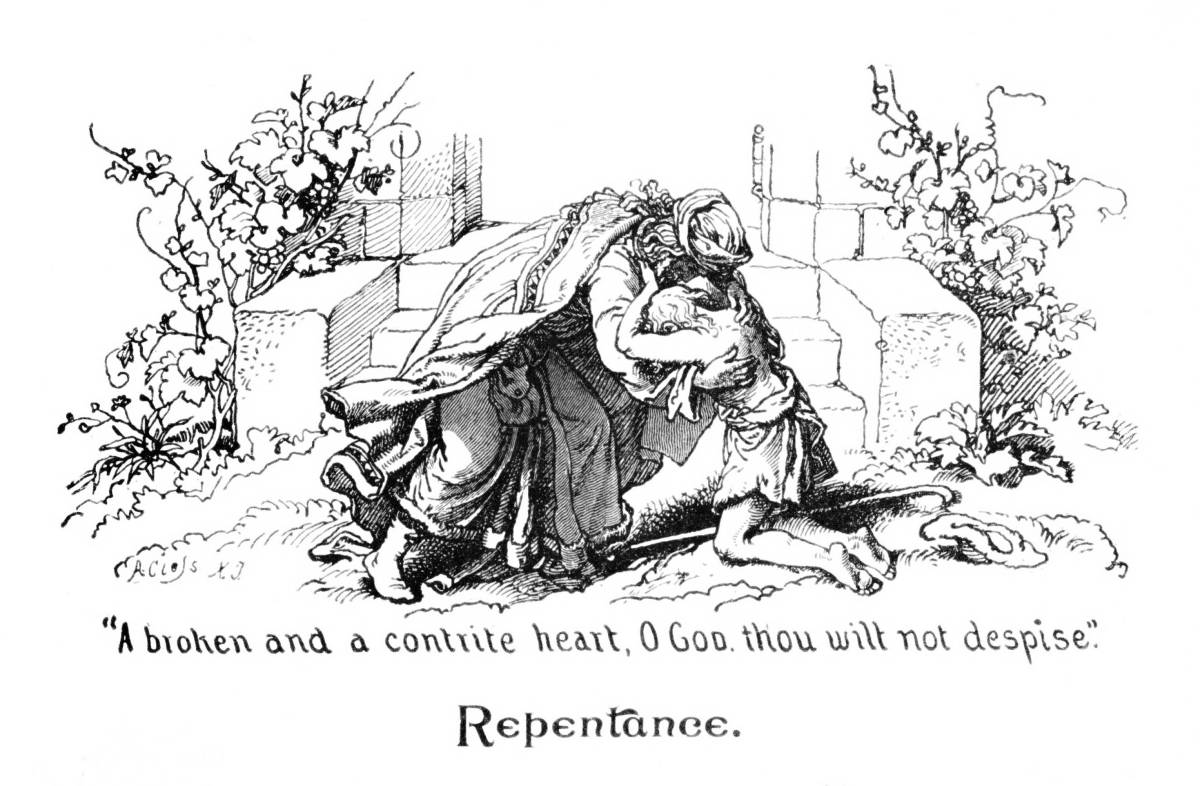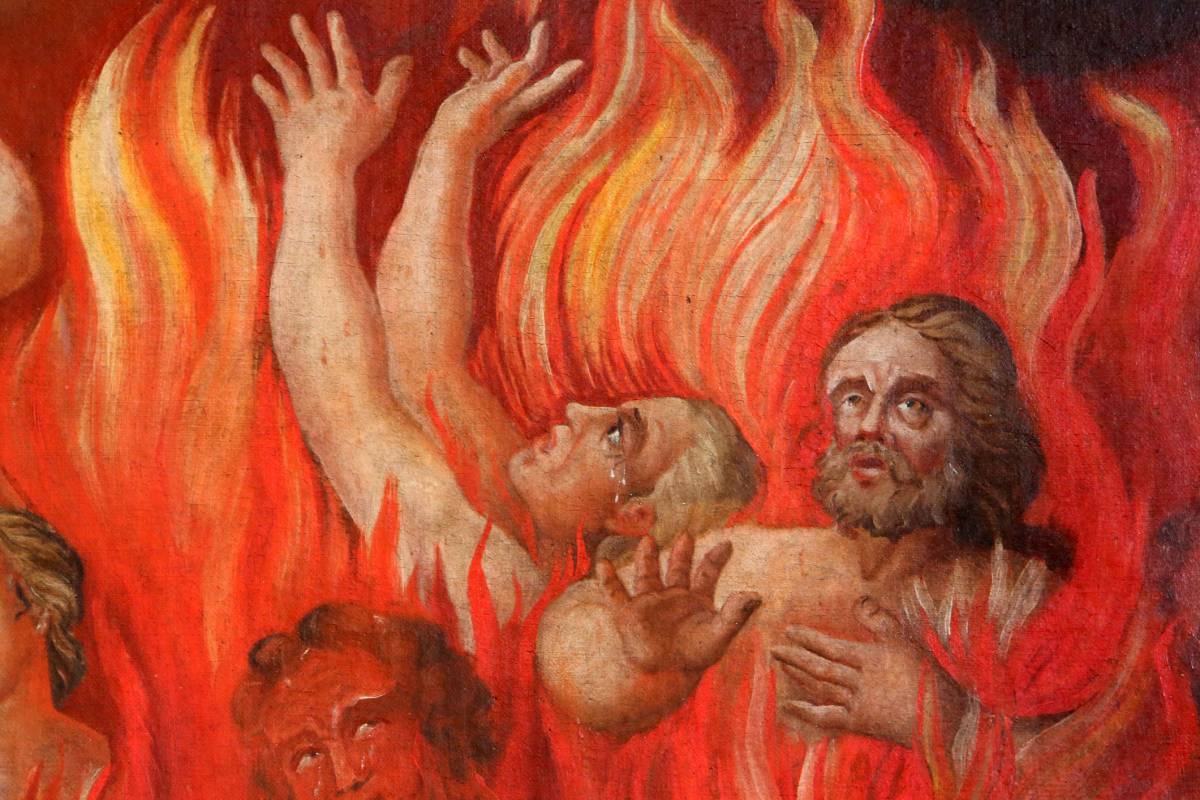Do I Not Rather Rejoice When a Wicked Man Turns Away From Evil
He knows that the happiness we seek can only be found by developing our capacity to love.
Many today argue that religion is too full of rules, that it denies the individual’s freedom to do or to be what “I” want to do and be. They see God as a cruel tyrant who demands absolute obedience to his rules, and if those rules are defied, he responds with tyrannical anger, threats, suffering, and death. But is that an accurate interpretation of God? Is God a tyrant, or is he a loving father? Is our image of God a mature image, or does it come from an immature understanding, an adolescent perception of God? This passage from the prophet Ezekiel seems to address our perceptions very directly.

“If the wicked man turns away from all the sins he committed, if he keeps all my statutes and does what is right and just, he shall surely live, he shall not die. None of the crimes he committed shall be remembered against him; he shall live because of the virtue he has practiced. Do I indeed derive any pleasure from the death of the wicked? says the Lord God. Do I not rather rejoice when he turns from his evil way that he may live?” Ezekiel 18: 21-23.
Does this sound like the words of a tyrant or a loving father? Would a tyrant forgive and forget the rebellions of his subjects, his children? Does a tyrant offer life, full and flourishing, to his people when they turn back to him, or does he punish them, crush them, or kill them for their audacious refusals to follow his ways? Are the ways of God too demanding? Are they cruel? Do they limit our capacity to be free? Or are they the products of a wisdom far beyond our own, but that we can come to know? Is that wisdom rooted in his love for us, his desire for us to learn how to be truly free? Does God take pleasure in making us suffer for our indiscretions, or does he, rather, rejoice when we finally ‘get it’?

If we read this passage correctly, doesn’t the God we believe in come across here more as a father who knows the world, how the world works, and the suffering it produces? He knows that the root of our suffering is often in our rebellious thoughts, words, and deeds, that it is the result of our immature demands for freedom that is not freedom, but a slavery to our selfish ego-demands. Did He not give us the powerful gift of intellect to come to know Him and His will for us? With that gift, he gave us the ability to come to know what is good, true, and beautiful. Did he not plant within us the instinct (conscience) to desire those things? Did he not give us the capacity of free will that enables, indeed, empowers us to freely choose the former rather than the latter? Does it not make sense, then, that He would take great joy if and when we finally ‘see’ the wisdom of His ways and willingly turn back to Him?

This passage argues that God is no tyrant but a loving father. A father wants his children to grow up, to be mature, self-disciplined, responsible adults in a world that wants to keep us resentful, self-absorbed, possessive teenagers. He knows us, and he knows the world and its temptations and that they almost always lead us to suffering in the end. He knows, too, that the happiness we so naturally seek can only be found by developing our capacity to love. This capacity to love arises naturally out of a mature relationship with Him, who is the source and goal of love. He wants us to learn that happiness is not about possessions, or political power, or the world’s acclaim, but that it comes from our growing capacities for self-discipline, and our ability to love God and our neighbor, even to the point of sacrifice.
The God of this passage models compassion, not anger; love, not self-aggrandising hate, or worse, indifference. The God of this passage is intimately concerned with the good of his people. It is this God that John the evangelist writes about when he says: “Whoever knows love knows God, whoever does not know love cannot know God, because God is love” (1 Jn. 4: 7- 8).
SKM: below-content placeholderWhizzco for FHB

